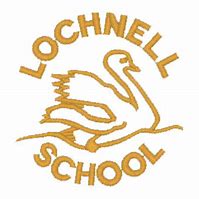At Lochnell School we endeavour to provide a curriculum which is broad and balanced. We view all areas of learning as having a valuable contribution to make, while at the same time recognising the particular importance of literacy and numeracy, as progress in these areas is essential to progress in other areas of the curriculum.
By adopting a variety of teaching approaches and strategies we aim to provide opportunities for all children to display their strengths and to develop their full potential. The children are encouraged to take an active part in their learning and are given the opportunity to pursue individual areas of interest at their own pace towards realistic targets. Attention is given to continuity and progression – teaching and learning is organised in a way which will make it easy for pupils to progress within and between the stages.
The children are actively encouraged to become effective learners.
Curriculum for Excellence (CfE) is the Scottish National Curriculum which applies to all children and young people aged 3-18, wherever they are learning. It aims to raise achievement for all, enabling children and young people to develop the skills, knowledge and understanding they need to succeed in learning, life and work.
The Four Capacities – the curriculum aims for all children to become:
- Successful Learners
- Confident Individuals
- Responsible Citizens
- Effective Contributors
The Eight Curriculum areas are:
- Expressive Arts – including art and design, dance, drama and music
- Health and Wellbeing – mental, emotional, social and physical wellbeing; PE; food and health; substance misuse; and relationships, sexual health and parenthood
- Languages – listening and talking, reading and writing in English and modern languages, plus classical languages and literacy, and Gaidhlig/Gaelic learners (where available)
- Mathematics – including analysing information, solving problems and assessing risk
- Religious and Moral Education (denominational and non-denominational) – learning about Christianity, other world religions, and developing values and beliefs
- Sciences – understanding important scientific concepts across planet Earth, forces, electricity and waves, biological systems, materials and topical science
- Social Studies – understanding people, place and society in the past and present including history, geography, modern studies and business education
- Technologies – including computing science, food, textiles, craft, design, engineering, graphics and applied technologies
Additional important themes across the curriculum are creativity, enterprise and global citizenship, which include sustainable development, international education and citizenship.
Learning Opportunities
Your child will learn in a variety of different contexts and groups including ability, co-operative and social.
Curriculum Levels
There are national levels to describe different stages of learning and progress. For most children the expectation is:
- Early Level – early learning and childcare to the end of P1
- First Level – to the end of P4
- Second Level – to the end of P7
- Third and Fourth Levels – S1 to S3, with the fourth level broadly equivalent to SCQF level 4
- Senior Phase – S4-S6, and equivalents in other settings, where pupils/students can continue to develop the four capacities and achieve qualifications
Skills for Learning, Life and Work
The development of the skills for learning, life and work are the responsibility of all practitioners and include literacy, numeracy and associated thinking skills; health and wellbeing, including personal learning planning, career management skills, working with others, leadership and physical co-ordination and movement skills; and skills for enterprise and employability.
Through Curriculum for Excellence children and young people are entitled to a continuous focus on literacy, numeracy and health and wellbeing. These skills are essential if children and young people are to gain access to continuous learning, to succeed in life and to pursue a healthy and active lifestyle. The use of ICT underpins these overlapping and mutually supportive skills sets; ICT skills will continue to be developed in a variety of contexts and settings throughout the learner’s journey.
All children and young people are entitled to opportunities for developing skills for learning, life and work. These skills are relevant from the early years right through to the senior phase of learning and beyond.
The Pupils’ and Parents’ Voice
Personalisation and choice is one of the seven principles of curriculum design and children and young people throughout their education will have the opportunity to discuss with their teacher the context in which they learn and how they will approach the learning. Staff will discuss new learning with the children at the beginning of a new topic and plan together the areas of specific focus, e.g. World War 2 – The Battle of Britain. This will be shared with parents/carers through Seesaw, and parents/carers will be invited to support the learning by sharing resources from home, e.g. a ration book, or by visiting the school to deliver a talk.
Parents/carers will be invited to share comment regarding the planned work for their child at various points throughout the year and are encouraged to feedback comment at any time through Seesaw.
The Curriculum at School, Local and National Level
Parents are welcome to contact the school if they require more information about the curriculum.
Information on Curriculum for Excellence can be found on the Education Scotland Website
